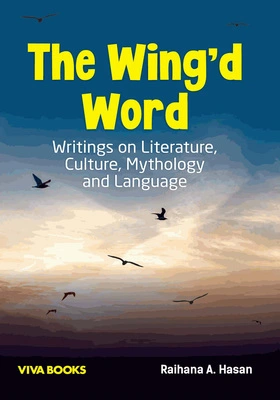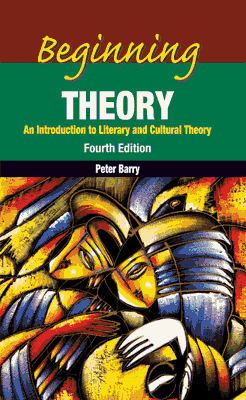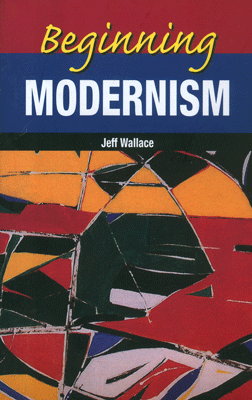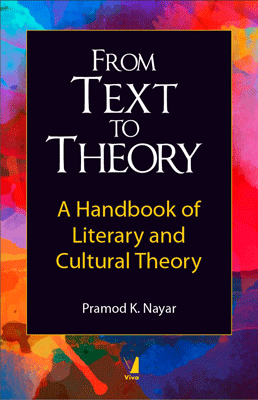The Merchant of Venice
The Merchant of Venice
Edited and with an introduction by Harold Bloom
₹535.50 ₹595.00 Save: ₹59.50 (10%)
Go to cartISBN: 9788130933900
Bind: Paperback
Year: 2016
Pages: 280
Size: 152 x 228 mm
Publisher: Facts On File Inc.
Published in India by: Viva Books
Exclusive Distributors: Viva Books
Sales Territory: India, Nepal, Pakistan, Bangladesh, Sri Lanka
Description:
Shakespeare's The Merchant of Venice is a richly complicated and disturbing work. Several themes are presented within the framework of a traditional comedy: however, the play has also been at the center of controversy due to its depiction of the Jewish moneylender Shylock, which many people feel is anti-Semitic. This invaluable new study guide to one of Shakespeare's greatest comedies contains a selection of the finest criticism through the centuries on The Merchant of Venice, including commentaries by such important critics as Victor Hugo, Northrop Frye, W.H. Auden, and many others. Students will also benefit from the additional features in this volume, including an introduction by Harold Bloom, an accessible summary of the plot, analysis of key passages, a comprehensive list of characters, a biography of Shakespeare, essays discussing the main currents of criticism in each century since Shakespeare's time, and more.
Each volume in the Bloom's Shakespeare Through the Ages contains the finest criticism on a particular work from the Bard's oeuvre, selected under the guidance of renowned Shakespearean scholar, Harold Bloom Intended for students just beginning their exploration of Shakespeare, these invaluable study guides present the best of Shakespeare criticism, from the 17th century to today In the process, each volume also charts the flow over time of critical discussion of a particular work.
This essential set is unique not only in the range of commentary it provides on each of Shakespeare's greatest works, but also in its emphasis on the greatest critics in our literary tradition — including such critics as John Dryden in the 17th century, Samuel Johnson in the 18th century, William Hazlitt and Samuel Taylor Coleridge in the 19th century, A.C. Bradley and William Empson in the 20th century, and many more Some of the pieces included are full—length essays; others are excerpts designed to present a key point.
Target Audience:
Students and academics of English literature.
Contents:
Series Introduction • Introduction by Harold Bloom • Biography of William Shakespeare • Summary of The Merchant of Venice • Key Passages in The Merchant of Venice • List of Characters in The Merchant of Venice
CRITICISM THROUGH THE AGES
The Merchant of Venice in the Seventeenth Century
1664—Thomas Jordan. On the stage appearance of Shylock
The Merchant of Venice in the Eighteenth Century
1701—George Granville, Baron Lansdowne, from The Jew of Venice • 1709—Nicholas Rowe. “Life of the Author,” from The Works of Mr. William Shakespear • 1710—Charles Gildon, from “Remarks on the Plays of Shakespear” • 1765—Samuel Johnson. The Merchant of Venice (notes), from The Plays of William Shakespear • 1775—Georg Christoph Lichtenberg, from Letters from England
The Merchant of Venice in the Nineteenth Century
1809—August Wilhelm Schlegel. “Criticisms on Shakspeare's Comedies,” from Lectures on Dramatic Art and Literature • 1817—William Hazlitt. ”The Merchant of Venice,” from Characters of Shakespear's Plays • 1833—Anna Jameson. “Portia,” from Characteristics of Women: Moral, Poetical, & Historical • 1838—Heinrich Heine, from Heine on Shakespeare: A Translation of His Notes on Shakespeare Heroines • 1839—Hermann Ulrici. “The Merchant of Venice,” from Shakspeare's Dramatic Art • 1849—Georg Gottfried Gervinus. ”The Merchant of Venice,” from Second Period of Shakespeare's Dramatic Poetry • 1849—Charles Knight, from Studies of Shakespeare • 1862—Friedrich Alexander Theodor Kreyssig, from Vorlesungen uber Shakespeare • 1863—Charles Cowden Clarke. “The Merchant of Venice,” from Shakespeare-Characters: Chiefly Those Subordinate • 1864—Victor Hugo, from William Shakespeare • 1872—H. N. Hudson. ”The Merchant of Venice,” from Shakespeare: His Life, Art, and Characters • 1879—Review of The Merchant of Venice, from The Saturday Review • 1881—A. Pietscher, from Jurist und Dichter • 1886—Rudolf von Ihering, from Der Kampf ums Recht • 1894—G. H. Radford. “Shylock,” from Shylock and Others: Eight Studies • 1898—Georg Brandes, from William Shakespeare: A Critical Study
The Merchant of Venice in the Twentieth Century
1913—Sigmund Freud. “The Theme of the Three Caskets,” from On Creativity and the Unconscious • 1927—Elmer Edgar Stoll. “Shylock,” from Shakespeare Studies: Historical and Comparative in Method • 1930—Harley Granville-Barker. “The Merchant of Venice,” from Prefaces to Shakespeare, Second Series • 1936—J. Middleton Murry. “Shakespeare's Method: “The Merchant of Venice,” from Shakespeare • 1959—C. L. Barber. “The Merchants and the Jew of Venice: Wealth's Communion and an Intruder,” from Shakespeare's Festive Comedy • 1962—W. H. Auden. “Love and Usury in The Merchant of Venice,” from The Dyer's Hand and Other Essays • 1965—Northrop Frye. From A Natural Perspective: The Development of Shakespearean Comedy and Romance • 1972—Leslie A. Fiedler. “The Jew As Stranger; or “These Be the Christian Husbands,— from The Stranger in Shakespeare • 1987—A. D. Nuttall. ”The Merchant of Venice,” from A New Mimesis: Shakespeare and the Representation of Reality • 1991—Harold Bloom. “Introduction,” from Shylock • 1992—John Gross. “Three Thousand Ducats,” from Shylock: Four Hundred Years in the Life of a Legend • 1996—James Shapiro. ““The Pound of Flesh,— from Shakespeare and the Jews
The Merchant of Venice in the Twenty-first Century
2002—Gary Rosenshield. “Deconstructing the Christian Merchant: Antonio and The Merchant of Venice,” from Shofar: An Interdisciplinary Journal of Jewish Studies
Bibliography • Acknowledgement • Index
About the Series Editor:
Harold Bloom is Sterling Professor of the Humanities at Yale University and the author of more than 30 books, including Shelley's Mythmaking (1959), Blake's Apocalypse (1963), Yeats (1970), The Anxiety of Influence (1973), A Map of Misreading (1975), Kabbalah and Criticism (1975), Agon: Toward a Theory of Revisionism (1982), The American Religion (1992), The Western Canon (1994), Shakespeare: The Invention of the Human (1998), How to Read and Why (2000), Hamlet: Poem Unlimited (2003), Where Shall Wisdom Be Found” (2004), and Jesus and Yahweh: The Names Divine (2005). In 1999, Professor Bloom received the American Academy of Arts and Letters” Gold Medal for Criticism.







